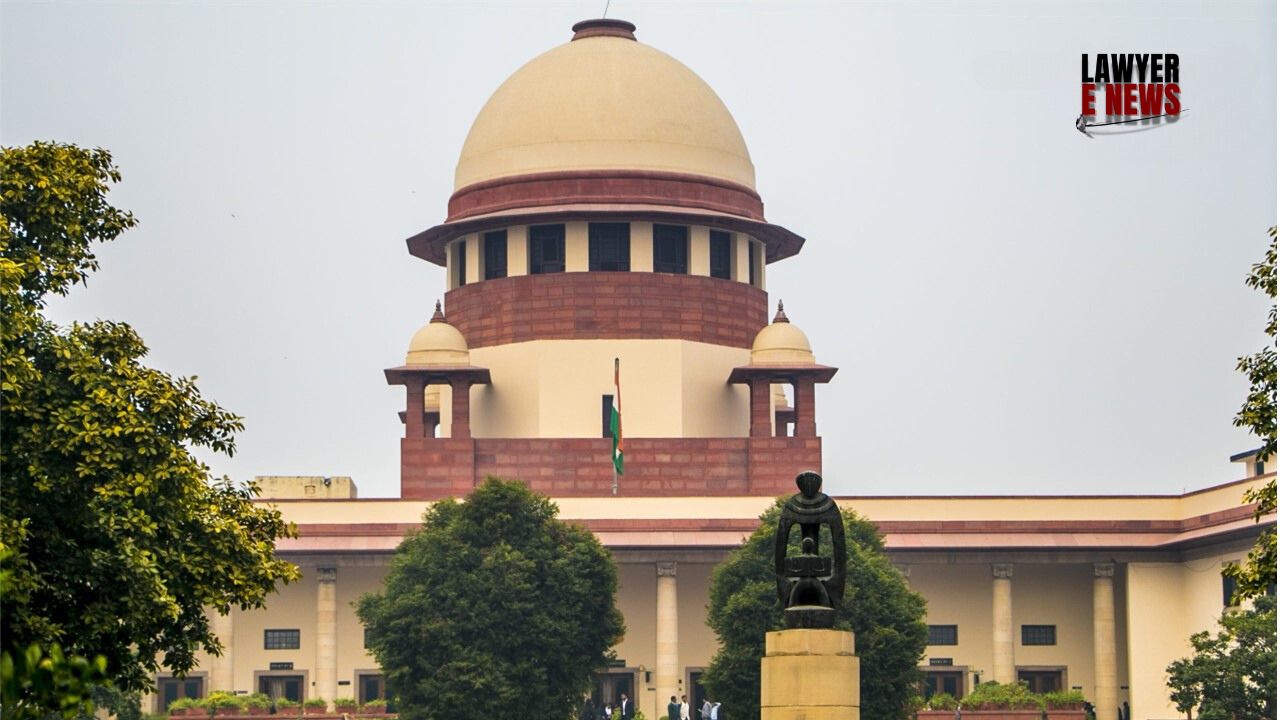-
by sayum
14 February 2026 2:22 PM



In a landmark decision, the Supreme Court of India overturned a contentious judgment by the Calcutta High Court that had acquitted an accused under the Protection of Children from Sexual Offences (POCSO) Act, 2012. The apex court, through a Suo Motu writ petition, strongly criticized the High Court’s reasoning, particularly its creation of the “non-exploitative sexual acts” category for minors, reaffirming the inviolability of the legal safeguards provided to children under the POCSO Act and the Indian Penal Code (IPC).
The case arose from a Criminal Appeal filed by the State of West Bengal, challenging the October 2023 judgment of the Calcutta High Court, which had acquitted an accused convicted under Section 6 of the POCSO Act and Sections 363 and 366 of the IPC. The case involved a 25-year-old man and a 14-year-old girl who had given birth to a child as a result of the accused’s actions. The High Court had controversially acquitted the accused, terming the relationship as a "non-exploitative consensual sexual relationship."
The Supreme Court took serious exception to the High Court's judgment, which, according to the apex court, was laden with personal opinions and irrelevant commentary that undermined the established legal framework. The High Court’s introduction of concepts such as "non-exploitative sexual acts" and its leniency towards what it termed a "romantic relationship" between the minor and the adult were harshly criticized.
The Supreme Court stated, “We fail to understand how a sexual act, which is a heinous offence, can be termed as non-exploitative.” The court firmly established that under Indian law, consent from a minor, especially in cases involving sexual acts, is irrelevant and that the law unequivocally protects minors under the age of 18 from any form of sexual exploitation.
The apex court reaffirmed that any sexual activity involving minors, regardless of perceived consent or the nature of the relationship, constitutes a punishable offense under both the IPC and the POCSO Act. The court emphasized, “Penetrative intercourse with a woman under eighteen years of age, with or without her consent, constitutes an offense of rape,” dismissing the High Court’s attempt to soften the legal stance on the matter.
The judgment highlighted the mandatory nature of punishment under Section 6 of the POCSO Act, which deals with aggravated penetrative sexual assault, and under Section 376(2)(n) of the IPC, which pertains to repeated rape.
Justice Abhay S. Oka, delivering the judgment, noted, “The courts must follow and implement the law. The courts cannot commit violence against the law,” underscoring the judiciary’s duty to uphold statutory provisions without letting personal opinions interfere.
This Supreme Court judgment serves as a powerful reminder of the non-negotiable legal protections afforded to minors under the Indian legal system. By overturning the High Court’s acquittal, the Supreme Court has reaffirmed the strict enforcement of the POCSO Act and the IPC in cases involving sexual offenses against children. The decision is expected to have a significant impact on the judiciary’s approach to similar cases in the future, reinforcing the rule of law over subjective interpretations.
Date of Decision: 20 August 2024.
In Re: Right to Privacy of Adolescents
